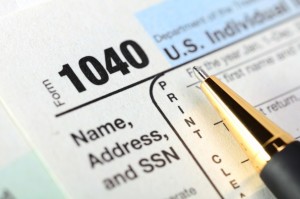Dear Liz: I have several small dings on my credit. I’m now in the position to pay them off, but how do I know my credit will be improved? Should I call the companies and ask if they will remove it if I pay in full and get it in writing?
Answer: Paying off collections won’t help your credit scores, and creditors rarely agree to delete collection accounts in exchange for payment. You can always ask, but don’t count on this as a way to improve your credit. The best way to recover from “small dings” is to use credit responsibly in the future. That means paying bills on time and using less than 30% of your available credit on your cards. You don’t need to carry balances to improve your credit.
 Today’s top story: IRS changes you should know about before filing taxes. Also in the news: How to avoid your parents’ money mistakes, how to avoid tax scammers, and what to do when you’re struggling with student debt.
Today’s top story: IRS changes you should know about before filing taxes. Also in the news: How to avoid your parents’ money mistakes, how to avoid tax scammers, and what to do when you’re struggling with student debt. Today’s top story: How to manage your investments during the Trump presidency. Also in the news: How to dig out from December’s debt, why ‘Buy Online, Pick Up in Store’ is a double-edged sword, and the first thing you should do after paying off a big debt.
Today’s top story: How to manage your investments during the Trump presidency. Also in the news: How to dig out from December’s debt, why ‘Buy Online, Pick Up in Store’ is a double-edged sword, and the first thing you should do after paying off a big debt. Today’s top story: 3 things you should know about the Dow hitting 20,000. Also in the news: Starting 2017 with a financial cleanse, how to protect your finances during a divorce, and tax-preparation tips for early birds.
Today’s top story: 3 things you should know about the Dow hitting 20,000. Also in the news: Starting 2017 with a financial cleanse, how to protect your finances during a divorce, and tax-preparation tips for early birds.  Today’s top story: How medical bill advocates can slash your costs. Also in the news: How two-factor authentication protects your online info, how investing apps can foil financial planning, and four credit card trends for 2017.
Today’s top story: How medical bill advocates can slash your costs. Also in the news: How two-factor authentication protects your online info, how investing apps can foil financial planning, and four credit card trends for 2017.